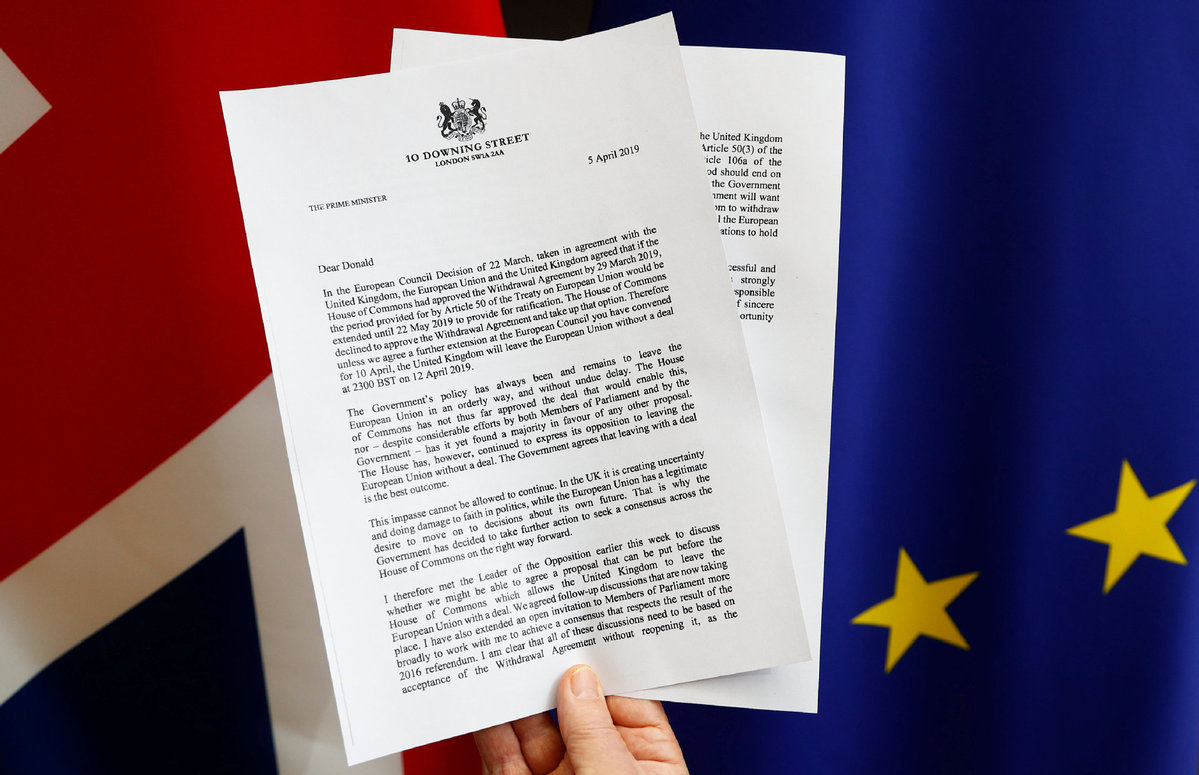May concedes Brexit deal won't pass 'in near future'
Updated: 2019-04-07 07:33

May now is asking for Britain's departure to be pushed back until June 30, hoping to reach a compromise with Labour and a deal through Parliament in a matter of weeks.
"The longer this takes, the greater the risk of the UK never leaving at all," May said in a statement.
But EU leaders favor a longer delay to avoid another round of cliff-edge preparations and politics. And they say the U.K. needs to put forward a concrete plan to end the stalemate to get any further postponement.
An extension requires unanimous approval from the 27 remaining leaders, some of whom are fed up with Brexit uncertainty and reluctant to prolong it further.
Last month, the EU gave Britain until April 12 to approve the withdrawal agreement it reached with the May's government, to change course and seek a further delay to Brexit, or to crash out of the EU with no deal in place or transition period to cushion the shock.
The leaders of EU member countries are due to meet in Brussels Wednesday — two days before the April 12 deadline — to consider Britain's request for a second extension.
Economists and business leaders have warned a no-deal Brexit would severely disrupt trade and travel, with tariffs and customs checks causing gridlocked British ports and possible shortages of some foods, medicines and other products.
Worries about a chaotic British exit are especially acute in Ireland, the only EU member that shares a land border with the UK Any customs checks or other obstacles along the currently invisible frontier would hammer the Irish economy and could undermine Northern Ireland's peace process.
Irish Prime Minister Leo Varadkar said Saturday that it was "extremely unlikely" any of the 27 countries would veto a delay.
AP
"If one country was to veto an extension and, as a result, impose hardship on us, real problems for the Dutch and Belgians and French as neighboring countries (to the UK)...they wouldn't be forgiven for it," he told Ireland's RTE radio.
























